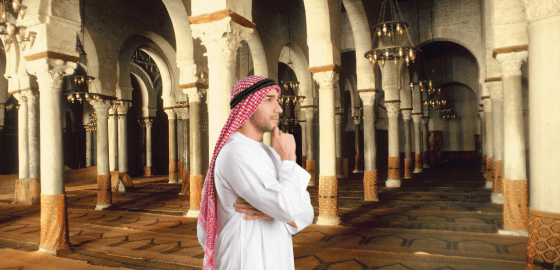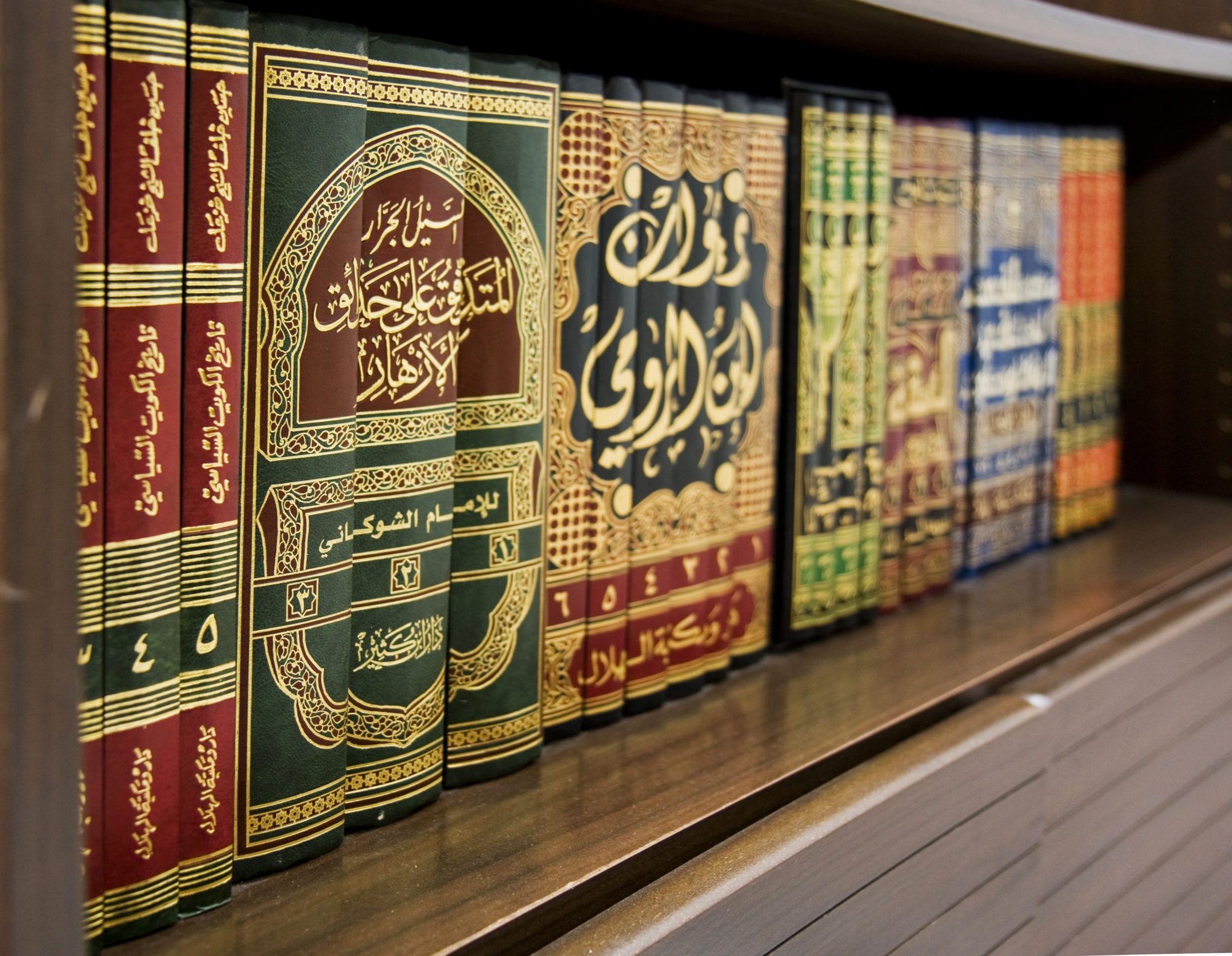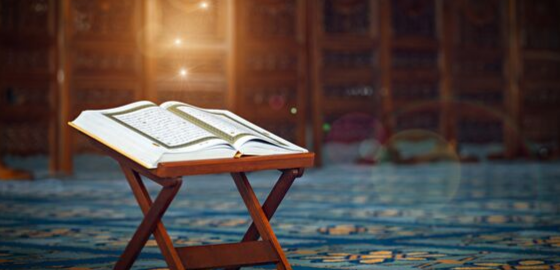This article serves as a simple fact sheet on the Golden Ages, to help readers remember some core facts about these beautiful parts of our history.
4 Fiqh Maxims for General Life Guidance
In this brief article, however, I want to show a different usage of these same maxims. I believe that these maxims can be used by the general public, not to make fatwas, but rather to guide their lifestyle choices and to keep their lives within an Islamic framework.
Misconceptions about Self-Confidence
Some Muslims shudder at the words ‘self-confidence’, because of a confusion that links self-confidence to arrogance. This is due to a misunderstanding regarding the concepts of humility and arrogance.
5 Ḥadīths on the importance of Family
In this age of individualism, it is often easy to forget the rights of the family. Many people live self-obsessed lives, oblivious of their duties to their parents, siblings, aunts, uncles, cousins, and extended families.
To help revive the Sunnah of caring for one’s family, here are 5 Ḥadīth on the importance of family in Islam. Special Thanks to Abu Amina Elias (Justin Parrot) for his amazing website from which I sourced these Ḥadīths. All these Ḥadīth have been graded authentic by scholars of Ḥadīth. More details are available on the source website.
1. Part of his final advice
Anas reported that the Messenger of Allah (s) said in his illness before he passed away, “Your family relations! Your family relations!” (Ṣaḥīḥ Ibn Ḥibbān 463)
So important are the rights of the family in Islam that the Prophet (s) mentioned it during his final illness. The Prophet (s) only advised regarding the most crucial matters during his final illness. The matters he emphasized during his final illness include monotheism, Salah, hygiene, and family. This raises the rights of family members to be among the most important matters in our religion.
2. Help them financially
A man asked the Prophet (s), “What act of charity is best?” The Prophet (s) said, “One given to an estranged relative.” (Musnad Aḥmad 15022 )
If a distant relative has become estranged or tries to break ties, the Islamic thing to do is to try and reconnect with them. To emphasize this, the Prophet (s) gave preference to charity towards family over others, especially towards estranged family members who may be too proud to ask for help. Charity here does not refer only to wealth but includes all acts of kindness. The Prophet (s) said, “Every act of goodness is charity.” (Sunan al-Tirmidhī 1970)
Often many people overlook their relatives when it comes to charity. They may be very generous to others, while the thought of assisting a struggling relative doesn’t even cross their mind. This is an unislamic mindset. Muslims must care for each other, and Muslim families must be especially caring towards each other.
3. The most beloved and hated of acts
Qatadah reported that a man of Khath’am came to the Prophet (s) and he said, “Are you the one who thinks he is the Messenger of Allah?” The Prophet said, “Yes.” The man said, “O Messenger of Allah, which deeds are most beloved to Allah?” The Prophet said, “Faith in Allah.” The man said, “Then what?” The Prophet said, “To maintain family relationships.” The man said, “O Messenger of Allah, which deeds are most hateful to Allah?” The Prophet said, “To associate idols with Allah.” The man said, “Then what?” The Prophet said, “To sever family relationships.” The man said, “Then what?” The Prophet said, “To enjoin evil and forbid good.” (Musnad Abī Ya’lá 6793 )
In this lengthy narration, the Prophet (s) lists some of the greatest good deeds and some of the worst sins. The high status of family relations is clear as he lists it as the second most beloved act to Allah. Likewise, the severing of family ties is listed as a major sin, second only to disbelief/polytheism.
This narration provides a double emphasis on family ties, maintaining it is a high priority for every believer. Severing it is a major sin and a source of Allah’s displeasure.
4. More important than voluntary worship
Abdullah ibn Amr reported the Messenger of Allah (s) said to him, “I am told you fast and never break your fast and you never stop praying at night? Fast and break your fast, pray at night and sleep. Verily, your eyes have a right over you, your own self has a right over you, and your family has a right over you.” (Ṣaḥīḥ al-Bukhārī 1876)
Sometimes we can become so self-obsessed in our spiritual journies that we neglect those closest to us. This narration is a reminder to find balance. We need to excel in worship, but we also need to make time for our families and to fulfill their rights. True piety is finding a balance between worshipping Allah and fulfilling the rights of His Creation.
5. Gentleness with family always benefits
Ibn Umar reported that the Prophet (s) said, “The people of a household are not granted kindness except that it will benefit them.” (al-Mu’jam al-Kabīr 13261)
We end with a beautiful reminder that the reward for goodness is always goodness. When we are kind, gentle and loving to our families, the return from Allah is His Infinite Mercy and Divine Reward. There is always benefit in being gentle with others. Let us make gentleness the foundation of our interactions with our extended family.
I hope you found this article beneficial. I am selling a bundle of 10 of my best eBooks for only $30. All profits from these sales will go towards funding the production costs of my upcoming book. You can purchase the full bundle here.

Virtues of Surah Fatiha
There are many powerful hadiths about Surah Al-Fatiha. I have translated some of them below but haven’t written any explanation for them.
I did this so that you can read them and reflect on them yourself to gain a deeper understanding.
Read and reflect:
Hadith 1 – The Greatest Surah
Imam Ahmad bin Hanbal recorded in the Musnad that Abu Sa`id bin Al-Mu`alla said, “I was praying when the Prophet called me, so I did not answer him until I finished the prayer. I then went to him and he said, ‘What prevented you from coming,’ I said, ‘O Messenger of Allah! I was praying.’
He said, `Didn’t Allah say, O you who believe! Answer Allah and His Messenger when he calls you to that which gives you life?’ He then said, ‘I will teach you the greatest Surah in the Qur’an before you leave the Masjid.’ He held my hand and when he was about to leave the Masjid, I said, `O Messenger of Allah! You said, I will teach you the greatest Surah in the Qur’an.’ He said, ‘Yes. It is Al-Hamdu lillahi Rabbil-`Alamin. (All praise to due to Allah, Lord of the Universe)It is the seven oft-repeated verses and the Glorious Qur’an that I was given.”
Hadith 2 – Nothing Like It
Imam Ahmad[1] recorded that Abu Hurayrah said, “The Messenger of Allah went out while Ubayy bin Ka`b was praying and said, ‘O Ubayy!’ Ubayy did not answer him. The Prophet said, ‘O Ubayy!’ Ubayy prayed faster then went to the Messenger of Allah saying, `Peace be unto you, O Messenger of Allah!’ He said, ‘Peace be unto you. O Ubayy, what prevented you from answering me when I called you?’ He said, `O Messenger of Allah! I was praying.’ He said, ‘Did you not read among what Allah has sent down to me, Answer Allah and His Messenger when he calls you to that which gives you life?’ He said, `Yes, O Messenger of Allah! I will not do it again.’
The Prophet said, ‘Would you like me to teach you a Surah the likes of which nothing has been revealed in the Tawrah, the Injil, the Zabur (Psalms) or the Furqan (the Qur’an)?’ He said, `Yes, O Messenger of Allah!’ The Messenger of Allah said, “I hope that I will not leave through this door until you have learned it.”
He (Ka`b) said, `The Messenger of Allah held my hand while speaking to me. Meanwhile, I was slowing down fearing that he might reach the door before he finished his conversation.
When we came close to the door, I said: ‘O Messenger of Allah, what is the Surah that you have promised to teach me?’ He said, ‘What do you read in the prayer?’ Ubayy said, `So I recited Umm Al-Qur’an to him.’ He said, ‘By Him in Whose Hand is my soul! Allah has never revealed in the Torah, the Gospel, the Psalms or the Furqan (Quran) a Surah like it. It is the seven repeated verses that I was given.”
Hadith 3 – A Conversation With Allah
Abu Hurayrah narrated that the messenger of Allah said that Allah said, “I have divided the prayer (Al-Fatihah) into two halves between Myself and My servant, and My servant shall have what he asks for.” If he says, “All praise and thanks be to Allah, the Lord of existence.” Allah says, “My servant has praised Me.”
When the servant says, “The Most Gracious, the Most Merciful.” Allah says, “My servant has glorified Me.” When he says, “The Master of the Day of Judgment,” Allah says, “My servant has glorified Me,” or “My servant has related all matters to Me.”
When he says, “You alone we worship, and You alone we ask for help.” Allah says, “This is between Me and My servant, and My servant shall have what he asks for,”
When he says, “Guide us to the straight path. The way of those on whom You have granted Your grace, not the way of those who earned Your anger, nor of those who went astray,” Allah says, “This is for My servant, and My servant shall acquire what he asked for.”
Note: All three hadiths are narrated in Tafsir Ibn Kathir. You can find more Hadiths about Surah Al-Fatiha there.







